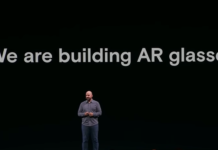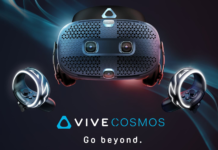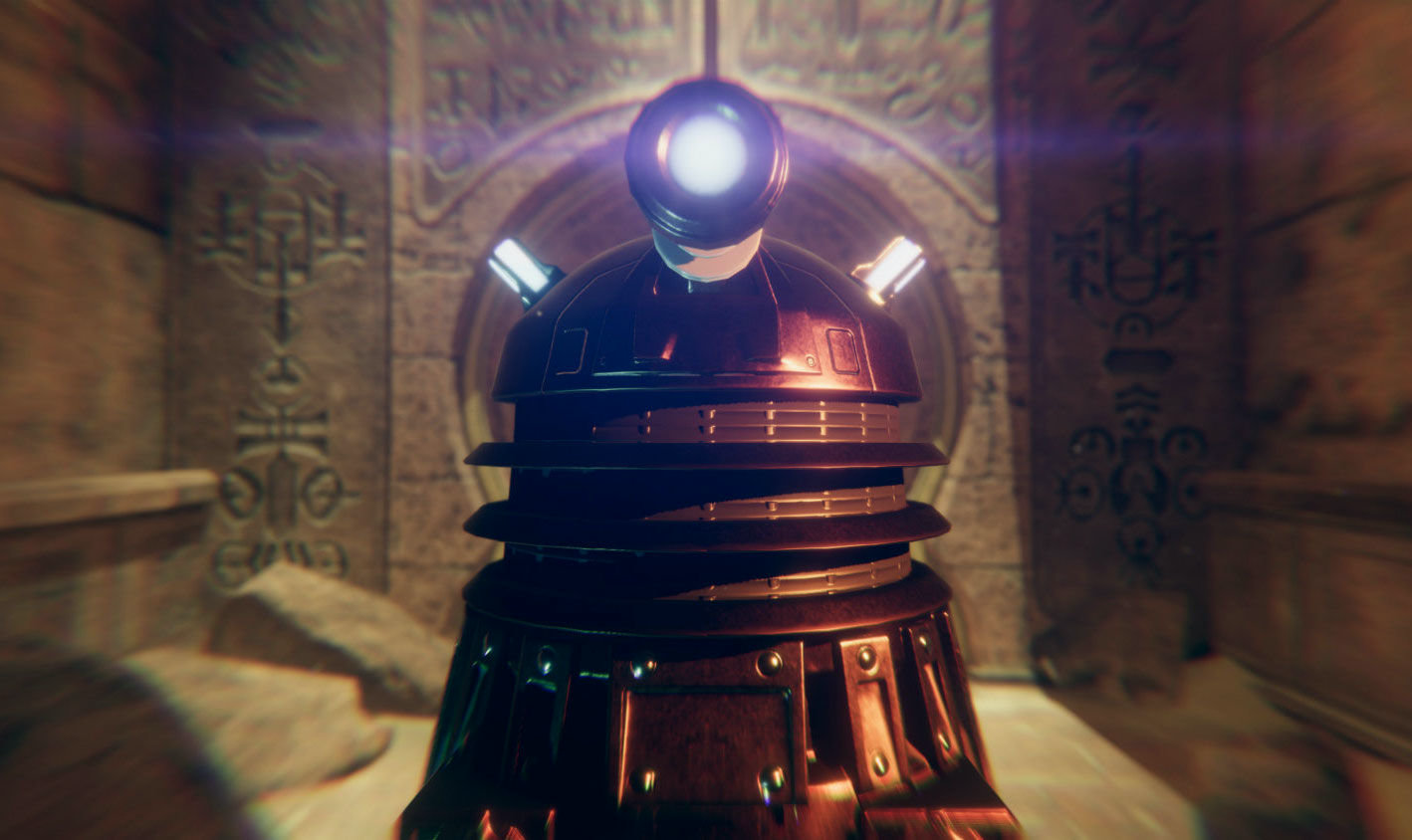After releasing on the Oculus Rift Platform back in November of 2019, the next major step for Doctor Who VR fans was the Oculus Quest release. The time has finally come, as Doctor Who: The Edge of Time officially debuted on the Oculus Quest yesterday.
When the Ian Hambleton, the CEO of the development team Maze Theory was about about the Oculus Quest release, this is what he had to say. “Oculus Quest has always been a key launch milestone for us. As a developer, we see Quest as being the key driver of mainstream adoption of VR. We’ve felt this for a long time, and now seeing the buzz around the headset and the huge growth of units out there is a big lift for the VR industry. Probably the key thing is how engaged the Quest community is—all playing lots of games, enjoying it with friends. We don’t need to see sales data for this; we experience this every day in the studio with our families and friends. It’s portability and usability make it such an incredible device.”
The Rift Platform is also receiving a big update helping players jump right where they want to be inside of the game. “This allows players to jump into certain key parts of the game via the menu instead of playing through the whole game,” explains Hambleton, “letting them show off the TARDIS to friends at a party, jump into the scary Weeping Angels game, and experience the Time Vortex or the Dalek Shooter.”
Oculus sat down with the Hambleton to learn about the launch and what it took to get the game where it is today. You can check out the full interview on the Oculus Blog Website. For your reading convenience, we have included the full interview below as well.
Full Oculus Interview
What kind of response have you seen since launching Doctor Who: The Edge of Time on the Rift Platform?
Ian Hambleton: It’s been wonderful to get the game out there after just over a year in development. We’ve had lovely feedback from fans and gamers alike and are really pleased with the player ratings we’re getting. Now it’s time to bring it to Quest, and it’s no understatement to say this feels like a huge milestone for Maze Theory.
Throughout the launch campaign for Doctor Who, we’ve also seen how many fans of the franchise have bought a Quest headset specifically to play this game. That comes with quite a lot of pressure, but we’re really pleased with what we’ve managed to make for them.
Did you encounter any technical challenges while optimizing Doctor Who: The Edge of Timefor a mobile chipset?
IH: Of course there are compromises and obstacles to overcome. You can’t compare the computing power of this versus PC, but what you get instead is so rewarding.
We’ve also been lucky to have around four months since the launch of the main game to work on optimization. At Maze Theory, we pride ourselves on high production values and a strong visual aesthetic. With a game that’s art style is close to photo-realism, it was always going to be a real struggle, but I’m actually pleasantly surprised at how close we’ve managed to get this graphically to the Rift version.
I guess we’ll have to see what players think. Plus as we’re offering this as cross-buy, they’ll get to compare if they have both headsets.
What’s your favorite part of Doctor Who: The Edge of Time and why?
IH: For the Quest version, I’ve certainly been enjoying the scenes where free roaming adds an extra level of immersion. I’ve been stepping in and out of the TARDIS and walking around the TARDIS interior in my garden to get the full effect.
Personally, the Victorian London scene is still my favorite, with the Weeping Angels and the opportunity to step back in time, rather than always going forward, which seems more of an obvious trend in VR.

What’s next for you? Any exciting updates in the works?
IH: We are really excited to be looking at bringing immersive drama to life by entering the world of Peaky Blinders. The experience will use artificial intelligence technology so in-game characters “will respond according to the players’ gestures, movement, voice, sound and body language.” This means players will be able to “interact and collude with much-loved characters in real time” in a “completely new gaming experience [that] immerses players in Peaky Blinders’ world in ways never done before.”
They will literally be part of Peaky Blinders’ world and be able to interact with characters in ways no one can predict. Fans of the cult show have been calling out for this type of experience, and we’re honored to be giving it to them. This is the future of entertainment!
We also have a new IP that we’re launching towards the end of the year, which will be exclusively for Quest. By doing a Quest-only game, we’re able to create something where intrinsically the game design can highlight all the Quest’s best features. Sometimes when you are having to design for all platforms, there are inevitable compromises which we didn’t want to make with this title. I can’t really say much more about it, but it’s something everyone in the studio is getting excited about.

Thanks for taking the time to chat with us, Ian. We can’t wait to see where Maze Theory takes us next.






























